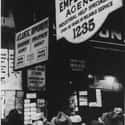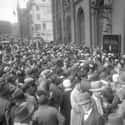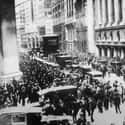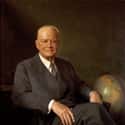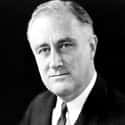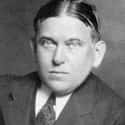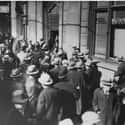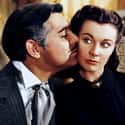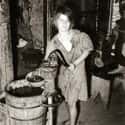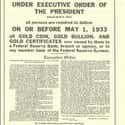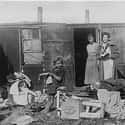-
(#1) The Depression Was Caused By The 1929 Stock Market Crash
In reality, the 1929-30 recession was less severe than the one in 1920-21. Yet, while 1921 saw an economic boom, 10 years of economic hardship followed 1930. So, if it wasn't the stock market crash, then what did cause the Great Depression?
First, keep in mind that the number-one characteristic of the Great Depression was high unemployment. After the 1929 crash, unemployment spiked, but it didn't reach double digits, peaking at 9%. It was actually on the mend, falling to 6.3% by June of 1930.
That month, the Smoot-Hawley Tariff was passed. While the tariff was pitched as a way to tax imports and thus incentivize the production of goods domestically, 1,000 economists from the leading public universities signed a public appeal against the act. The tariff spawned retaliatory tariffs in other countries that made it harder for Americans to sell their goods abroad. Within five months of the passage of the bill, unemployment reached double digits for the first time, where it stayed for the rest of the 1930s.
The tariff was the first of many misguided government interventions that were largely the cause of the Depression. Some have argued that the Federal Reserve's loose monetary policy of the 1920s, which was followed by a tight monetary policy in the early 1930s (dubbed The Great Contraction), played the biggest part in creating the Depression, while others hotly contest that theory.
-
(#2) The Depression Was Limited To The US
While the Great Depression started in the US, it quickly spread outward and became a global event. It gave rise to Fascism and National Socialism in Europe, and, in many ways, it set the stage for WWII. The protectionist policies that began in the US quickly spread around the world, causing international trade to grind to a virtual standstill.
-
(#3) People Buying Stocks On The Margin Caused The Stock Market Crash
By 1929, the US stock market was inflated to unsustainable levels, fueled by the oft-derided "stock speculators," and indeed many of the stocks were purchased on the margin. Purchasing a stock on the margin basically means that the purchaser pays a percentage of the stock's cost in cash, and the rest is fronted by a broker or agent. Thus, when such a stock fails, the person still owes the part of the sale that was fronted by the broker.
The problem with attributing the crash to this is that marginal trading was no worse in the 1920s than it had been in the previous decades. Margin requirements actually started to rise by the Fall of 1928.
Instead, some argue that the actions of the Federal Reserve during the 1920s may have helped fuel a stock bubble. Between 1921 and mid-1929, the Fed increased the money supply some 60%. Others suggest that the increased support for the Smoot-Hawley Tariff also played a role in causing the market to crash (it passed the House of Representatives in May 1929).
-
(#4) Herbert Hoover Was A Pro-Free Market, Laissez-Faire President
The myth that Herbert Hoover was a "sit back and let the economy fix itself" president has no basis in reality. In addition to his Smoot-Hawley Tariff of 1930, Hoover engaged in a multitude of economic interventionist policies. The Hoover Dam is a literal monument to Hoover's public works projects, which also included the Golden Gate Bridge.
Hoover also raised the top income tax level from 25% to 63% and the lowest from 1.1% to 4% in 1932. He pressured business leaders to maintain wages (despite falling consumer prices), effectively pricing many Americans out of jobs. Hoover doubled government spending in only four years. It was so extreme that even FDR criticized Hoover as “the greatest spending administration in peacetime in all of history.”
-
(#5) Domestic Production Was Low
At first, yes, domestic production did slump. Between 1930 and 1933, production at factories, mines, and utilities fell by more than half. After the initial drop, however, production steadily began increasing, reaching pre-1929 levels in 1937.
While the massive crop failures of the Dust Bowl did cause substantial hardships to many Americans, they only came after a massive crash in the price of agricultural goods. Thanks largely to the Smoot-Hawley Tariff and ensuing trade war, export markets were essentially closed to US agricultural goods, creating a domestic surplus. The price of a bushel of wheat fell from $1 in 1929 to 30 cents in 1932.
Actually, there was so much farming that the US Federal government was actively destroying crops. Under the Agriculture Adjustment Act, the US government was buying up entire fields of viable crops to plow under and slaughtering millions of completely healthy livestock. This was an attempt to curb the supply to better match it with the artificially lowered demand and, in turn, increase prices. The legacy of this program still exists today in the form of the Conservation Reserve Program; in certain places, people are still being paid by the government to not grow crops.
-
(#6) FDR Ran On The Platform Of The New Deal
When Franklin Delano Roosevelt beat Herbert Hoover with 472 electoral votes to just 59 in 1932, it wasn't because he was promising to deliver New Deal Programs. The Democratic platform actually called for a 25% reduction in Federal spending, a balanced Federal budget, and the removal of the government from areas it was ill suited for.
What FDR actually did as president is a whole other story. In short order, he abandoned his platform and worked to erect a massive Federal bureaucracy that, in many, cases simply expanded programs created by Hoover. As a result, Director of the Bureau of the Budget, Lewis W. Douglas, resigned after just one year on the job. Government expenditures rose by more than 83% between 1933 and 1936, while Federal debt rose by 73%.
-
(#7) Most Americans Were Steadfastly Behind The New Deal
While most Americans did back FDR generally speaking, their appetite for his New Deal policies has been overstated. In particular, many were unhappy with FDR's lambasting of the business community. A 1939 poll by the American Institute of Public Opinion asked, "Do you think the attitude of the Roosevelt administration toward business is delaying business recovery?" People responded 2 to 1 in the affirmative.
Some people, including famed Journalist H.L. Mencken of The Baltimore Sun, were openly critical of FDR's policies. In 1933 Mencken wrote, "[the] republic proceeds towards hell at a rapidly accelerating tempo. With the debt burden already crushing everyone, Roosevelt now proposes to relieve us by spending five or six billions more. I am advocating making him king in order that we may behead him." The obituary he wrote for FDR was equally scathing.
-
(#8) Banks Closed Because They Didn't Have Access To Credit
On the contrary, the Federal Reserve was created in 1913 for the explicit purpose of being the lender of last resort when transactions between banks dried up. So why did so many banks close between 1929 and 1932?
At the time, many states in the US had unit banking laws. Basically, these made it illegal for large banks to open branch locations in certain places. Unit banks, on the other hand, are small banks that operate independently, serving a single specific location. While branch banks are backed (and ultimately controlled) by large financial institutions, unit banks are not.
The McFadden Act of 1927 explicitly banned interstate branch banking. Without access to a widely diversified financial backer, unit banks are much more sensitive to financial downturns. The widespread reliance on unit banking (by law) in the US was a major reason so many banks closed. Analysis has found that states that allowed branch banking saw fewer bank failures during the Depression. Further, Canada, which had no laws against branch banking, didn't see a single bank closure.
-
(#9) Everyone Was Poor During The Depression
While the Depression did have a wide impact, up to 40% of Americans faced no real economic hardship. Some people even managed to get rich during the time period. This period was also considered the Golden Age of Hollywood – when the studio system was at its zenith. Such classics as Dracula, Frankenstein, and Gone With the Wind were all filmed during the 1930s.
-
(#10) The New Deal Ended The Depression
According to some, at best, the New Deal was ineffective, and, at worst, it actually lengthened the Depression. It was the manpower requirements of WWII that finally got people back to work. Millions of Americans found gainful employment as enlisted men, effectively bringing the unemployment rate bellow double digits for the first time since 1930. Others found work due to the increased production demands of the war.
Some argue that, with the rationing and economic hardship of the war years, the Depression really shouldn't be considered over until 1947. Counting the increased GDP of the war spending participates in the broken window fallacy, which is premised on the idea that it's fallacious to reason that destruction benefits an economy.
The Depression finally ended, in part, because the manufacturing capabilities of most of the rest of the world had been bombed out, giving the US a competitive advantage. Another factor were the decreased regulation and taxes under President Truman.
-
(#11) Adherence To The Gold Standard Caused The Depression
In the first place, the world hadn't been on the classic gold standard since WWI and instead was using a "gold exchange standard" by the time of the Depression. Under this system, currencies were pegged primarily to the British pound and the American dollar, which, in turn, were redeemable for gold. As the 1920s went on, gold itself played less and less of a direct role in international finance.
Then, in 1933, FDR actually seized the gold assets of private American citizens. That's right; he used his executive authority to forcibly purchase gold bullion and gold certificates on behalf of the government. This completely liquidated the natural gold exchange system that existed. The executive order essentially made it illegal to own gold, physically or as an asset.
FDR then, thanks to a power granted by Congress, arbitrarily altered the price of the dollar relative to gold. He picked a 21 cent hike because, well, 21 was a lucky number. So, far from creating a stable currency (the purpose of the gold standard), FDR intervened directly to subvert the gold standard and inflate the dollar. If adherence to a gold standard was indeed the cause of the Great Depression, it stands to reason that these actions would have ended it. Instead, the sudden change in the value of money exacerbated the climate of uncertainty plaguing the economy.
-
(#12) The New Deal Policies Of FDR Ended The Depression
At best, the New Deal policies were ineffective, and at worst they actually lengthened the Depression. In reality, it was World War II that ended the Great Depression (in a way). It directly ended the unemployment problem with millions of Americans landing "gainful" employment as enlisted men. Millions more were drawn into service to produce goods for the singular goal of the war effort. The war also broke up the protectionist policies that had dominated the globe in the 1930s. The US was trading internationally again, at least with its allies.
Some argue, however, that it would not be until the end of WWII that the Great Depression could really be considered over. During the war, rationing was the norm, and even with the increased wartime production, the standard of living in the US was still at Depression levels. Economic activity was still low. When the war ended Truman rolled back many of FDRs policies, lowered the tax burden, and reduced government spending from 42 percent of GDP to 14 percent. The US also became a major industrial center for the world, mostly because it wasn't bombed to bejesus and back like everywhere else. It was this postwar boom that finally brought back economic prosperity.
New Random Displays Display All By Ranking
About This Tool
The Great Depression refers to the serious economic crises that originated in the United States from 1929 to 1933 and spread to the entire capitalist world, including the United States, Britain, France, Germany, and Japan, and other capitalist countries. The Great Depression is the longest-lasting economic crisis in modern society, which caused massive unemployment and serious social problems, and finally led to the outbreak of World War II.
The Great Depression was not only a disaster for the stock market but also triggered a chain reaction in the economy of the world. The random tool explained 12 wrong things about the Great Depression that most people know.
Our data comes from Ranker, If you want to participate in the ranking of items displayed on this page, please click here.











